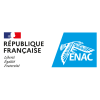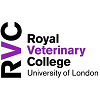Snabbfakta
-
- Toulouse
Ansök senast: 2024-06-25
Postdoctoral Researcher on Fleet Guidance by Deep Reinforcement Learning (FireFlies Project TSIA, ANR)
Founded 70 years ago, ENAC, École Nationale de l'Aviation Civile, is Europe's largest aeronautical Grandes Écoles or university. It provides initial and advanced training for managers and key players in the civil aviation industry: engineering, air navigation, piloting, airport management, research, expertise and international development.
ENAC is a public scientific, cultural and professional establishment, under the supervision of the DGAC (Direction Générale de l'Aviation Civile ), the French civil aviation authority.
About Us:
Our research team has been at the forefront of cutting-edge research and innovation, leveraging UAV technology to explore dynamic atmospheric phenomena and address civil security challenges. Since 2003, we have been developing and utilizing our own open-sourced autopilot system called Paparazzi, which has become a key component in our UAV research and guidance endeavors.
Our group's commitment to excellence in Atmospheric Science and UAV technology makes it an ideal environment for researchers seeking to make a meaningful impact on the world's most pressing challenges, including civil security, environmental monitoring, and anti-drone operations. We are currently seeking a highly motivated and skilled Postdoctoral Researcher to join our dynamic team and contribute to our mission of advancing UAV guidance through deep reinforcement learning in the context of fleet operations.
Position Overview:
As a Postdoctoral Researcher in our university, you will be an essential member of our UAV research group, focusing on the development and implementation of reinforcement learning algorithms for guiding fleets of UAVs in dynamic and challenging environments. Your work will center around exploring dynamic phenomena such as atmospheric phenomena (e.g., clouds) and emergency situations like fire fighting (e.g., wild fires, industrial fires). The ultimate goal is to enhance the efficiency and effectiveness of UAV fleet guidance, particularly in the context of civil security applications, while also exploring potential integration into anti-drone operations.
Responsibilities:
Conduct cutting-edge research in the field of reinforcement learning applied to the guidance of UAV fleets, with a specific emphasis on dynamic phenomena exploration and civil security applications.
Develop and implement novel reinforcement learning algorithms, considering real-time constraints and the unique challenges of guiding UAV fleets.
Design simulation environments and conduct experiments to evaluate the performance of the reinforcement learning algorithms in various scenarios, including atmospheric conditions and emergency situations.
Collaborate closely with other researchers and engineers to integrate the developed algorithms into existing UAV platforms.
Stay up-to-date with the latest advancements in the fields of artificial intelligence, robotics, and UAV technology.
Publish research findings in high-impact journals and present at relevant conferences and workshops.
Mentor and collaborate with graduate and undergraduate students in the research group.
Take part in Project management.
Requirements:
Ph.D. in Computer Science, Electrical Engineering, Robotics, or a related field with a strong focus on UAVs and reinforcement learning.
Proven expertise in reinforcement learning algorithms, including practical experience with popular frameworks like PyTorch.
Proficiency in programming languages such as Python and C++ for algorithm development and implementation.
Familiarity with Robot Operating System (ROS) and simulation platforms such as Omniverse and Isaac Sim will be highly advantageous.
A track record of publications in reputable conferences and journals in the field of AI and robotics.
Demonstrated ability to work independently as well as collaboratively in a team environment.
Strong problem-solving skills, analytical thinking, and mathematical aptitude.
Application Process:
The application should include a cover letter, a detailed curriculum vitae, a list of publications, and the name and contact information of at least one reference. Shortlisted candidates will be contacted for further interview and discussion.












